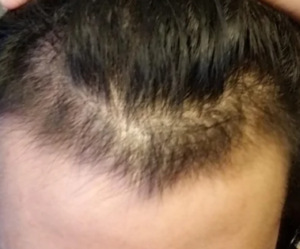The following is from a Reddit post. The graph is very interesting. I asked for the references from the poster for scientific clarity:
BACKGROUND: Many of you will be familiar with this old graph showing DHT inhibition from various microdoses of finasteride. You may even be using that data to help you choose which microdose of finasteride to take in an attempt at minimizing the chance of side effects. Turns out it was derived from the study: “Clinical dose ranging studies with finasteride, a type 2 5cz-reductase inhibitor, in men with male pattern hair loss”. However, as far as I can see, the graph isn’t actually displayed in the original study. Someone created the graph from just the numbers that the study reported.
Anyway, the home-brew graph contains a number of limitations, so I’ve improved upon it in the following ways:
-
-
Instead of using just one study, mine uses three, one of which is topical. That’s all of the range dosing studies as far as I know! They are colour coded everywhere in the image for clarity. The old graph is represented in my new graph as the red solid (not dotted) curve.
-
The graph display range has been adjusted from 0-5mg to 0-1mg. This helps make it a lot easier to see the much smaller microdoses, even around 0.05mg.
-
I give the ORIGINAL data points (as shown by the diamond/circle/X points and x/y labels). Needless to say, everything else is derived and only an approximation, so should be treated with caution!
-
Accuracy is better in the new one. The old one has a figure of 25% DHT inhibition for 1/16th mg dosage. I think the true figure is more like 37% as shown in the new graph.
-
I also give (where applicable) the DHT percentage reduced not just in the serum, but also the scalp, and also show a curve reporting the number of hairs grown back (or lost) – see the dashed red curve.
-
Finally, the studies I used are listed, and I stated the number of days / months before a DHT measurement is taken.
As more microdosing studies come in (topical or oral), I look forward to updating the graph further. Here’s the new graph again: https://archive.is/OGDk3

Click to enlarge






